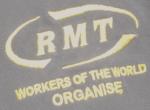The following article has been published in the PCS (civil service trade union) activists' magazine. PCS is interested in working to unionise cleaners, and believes that it can learn from our efforts with London Underground cleaners.
London calling: the divided city
A living wage campaign for Underground cleaners continues despite successes last year, says RMT London Transport regional council secretary Janine Booth
Mayor of London Boris Johnson last month described the £250,000 a year he receives to write a weekly column for a national newspaper as “chicken feed”.
This is, of course, on top of his mayoral salary of almost £140,000 which itself works out at around £75 an hour for a normal working week. That’s one hungry chicken.
Contrast this with 500 London Underground cleaning staff who work for ISS on the Tube Lines contract who still earn £6.15 an hour and work in appalling conditions, despite the London Living Wage being raised to £7.60.
While Boris Johnson is being driven across the city in taxis, underneath the streets our members are expected to clean up syringes, deal with the aftermath of suicides and run the constant risk of exposure to diseases carried by rats.
Instead of river-view offices and brushed chrome facilities, cleaners work in filthy conditions down the tube tunnels. They typically have no access to hot and cold running water to wash themselves and share primitive and cramped, mixed changing rooms.
The Mayor has pledged that all GLA and Transport for London staff would receive the living wage. But ISS claims it can no longer afford to pay it and we have called on Mayor Johnson as chair of TfL to intervene.
A charter for change
Concerted action by our cleaning members last year – alongside the fantastic support we have had from campaigners from outside our industry – won the living wage on contracts across the Underground network.
This was as a result of a massive campaign which combined industrial action with political pressure, and is ongoing because we recognise the living wage should only be a minimum.
Part of this was to develop a cleaners’ charter that gives us something to recruit, organise and campaign around.
As well as demands around pay, conditions and progression, the charter calls for an end to the exploitation of cleaners who since being contracted out from the mid-1980s onwards, and through rail privatisation, have been treated by employers as separate from other railway staff.
There is high proportion of migrant workers in the cleaning workforce, and employers deliberately exploit this vulnerable section of workers. The bosses have recently starting using immigration raids to crank up the pressure on cleaners not to assert themselves for better pay and conditions.
As a union we are trying to deal more effectively with immigration issues and have published a reps' guide to immigration checks, which is available online.
We are all trade unionists
The basis of our campaign is that everyone who works on the railway is a railworker, whether they maintain the tracks, sell tickets, make announcements, drive trains, draw up rosters, pull signal levers or clean stations or trains.
Our activists resolved that no grade should be left out because they were “too difficult to organise” or not really railway workers.
In practice for example, this has meant that RMT station staff and drivers' reps have represented cleaners at disciplinary hearings, and that members in different grades have taken responsibility for recruiting and involving cleaners in their area, while working to recruit and train reps from among the cleaners themselves.
Our next step is to revive our regular cleaners' meetings; democracy and participation by rank and file workers is as crucial to this campaign as any other.
The next meeting will discuss and agree a detailed strategy for organising, and we will then allocate resources accordingly.
I would like to see the union submit a new pay and conditions claim to all the cleaning employers, especially in light of the recent uprating of the London Living Wage.
I think organising drives work best when focused around winnable demands for a better life at work, rather than just on the principle that trade unionism is “a good thing”.
- 2395 reads





